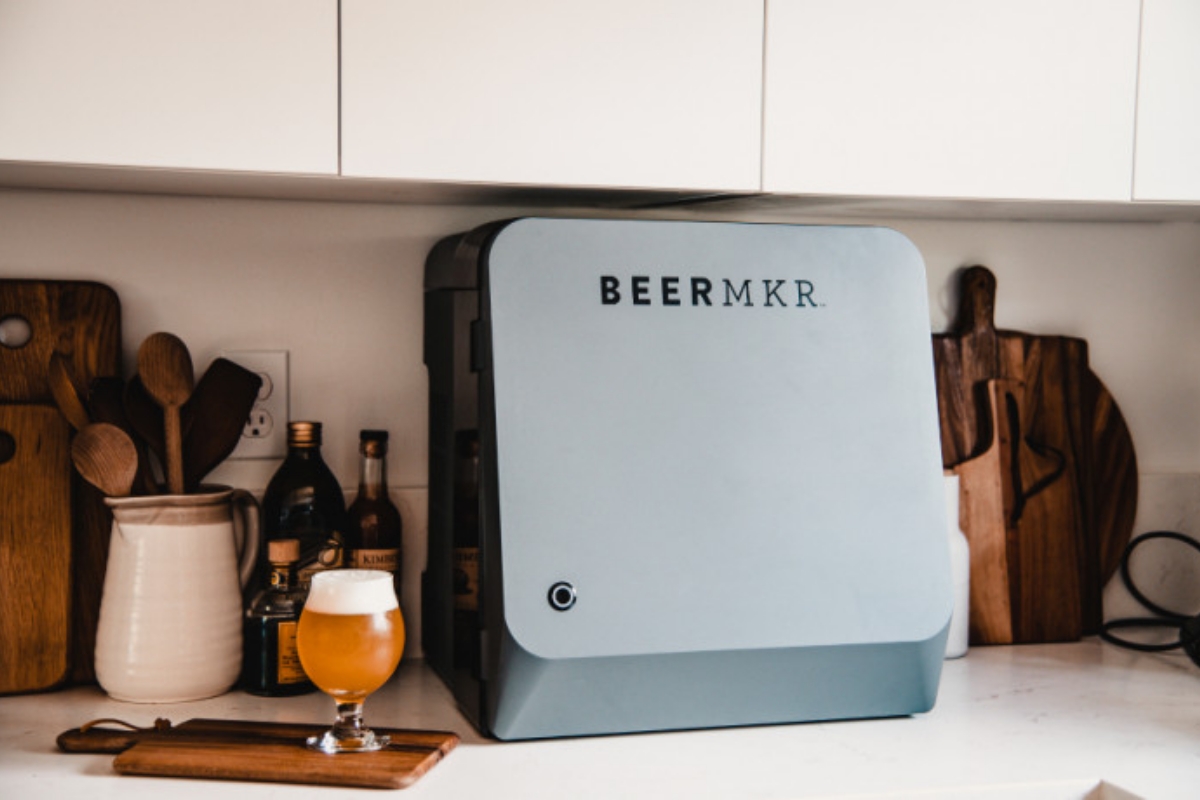
BEERMKR is an automatic home brewing machine that turns raw ingredients into beer. Users add their ingredients to the countertop unit, where a suite of onboard sensors and heating elements guide the soon-to-be beer through brewing and fermentation. Once the app gives the signal, users transfer the batch to the fridge for carbonation. Interesting Engineering had the chance to interview co-founder Aaron Walls at CES 2022 to learn about how this appliance and app can be brought into customers homes.
Aaron Walls: BEERMKR is an all-in-one automated craft beer-making device that anybody can use. It brews commercial-quality beer from raw ingredients — the same ones that are used by commercial breweries. It maintains fermentation temperatures, and it prevents contamination from oxygen and from bacteria throughout the entire process. It is entirely open, so you can add whatever ingredients you want. You can mix and match. You can customize the kits that we have, or you can build brand new kits that are entirely yours. You can even do things like add chocolate or coffee. It’s a really exciting way to have fun with beer.
AW: We had a Kickstarter in 2018. We began manufacturing a year later, in 2019. Covid set us back by about a year. We finally started shipping at the end of 2020 all the Kickstarter backers, and we’ve been pretty solidly in the market since then. We were on Shark Tank in May of this past year, and then we had a really great holiday period.
IE: What’s inside the unit?
AW: There’s a thermal electric heat exchanger, which maintains the temperature during fermentation as well as brewing. There are multiple heating elements that allow the correct gradient to occur across the entire batch, so you have even heating. We’ve got a vibratory motor at the bottom that shimmies the yeast sediment down to a waste bag on the very bottom. [At the top] is our brewing chamber, made of thermoplastic polypropylene. That’s the same stuff a coffeemaker is made out of. It’s connected through valves to the back and underneath where the fermentation or the permutation occurs.
IE: Does BEERMKR use the same techniques that are employed at a commercial brewery?
AW: We had to make a lot of departures from traditional brewing in order for this machine to function, and we had to ensure that the departures we made for engineering reasons could still produce proper beer from a chemical standpoint. We’re not boiling, so we had to treat some ingredients beforehand in order to reach the correct alpha acid concentration.
IE: What challenges did you confront in designing the machine itself?
AW: The pressure vessel was a huge challenge. My two mechanical engineering co-founders tell me that it was incredibly difficult to get right because it’s not cylindrical like a traditional pressure vessel. We had to go through a lot of iterations to get the correct rib outline. It has to hold pressure without rupturing or creating any kind of problems for users in their house. Something we also settled on as a safety feature was to include an external shell in case of any catastrophic failure. Another safety feature we designed was the CO2 carbonation cartridge actually pins shells together. Once you screw it in, the shell can’t open it. You don’t want to be able to open it when it’s under pressure. We had to do a lot of mechanical design like that to make the system safe.
Photo courtesy of BEERMKR
